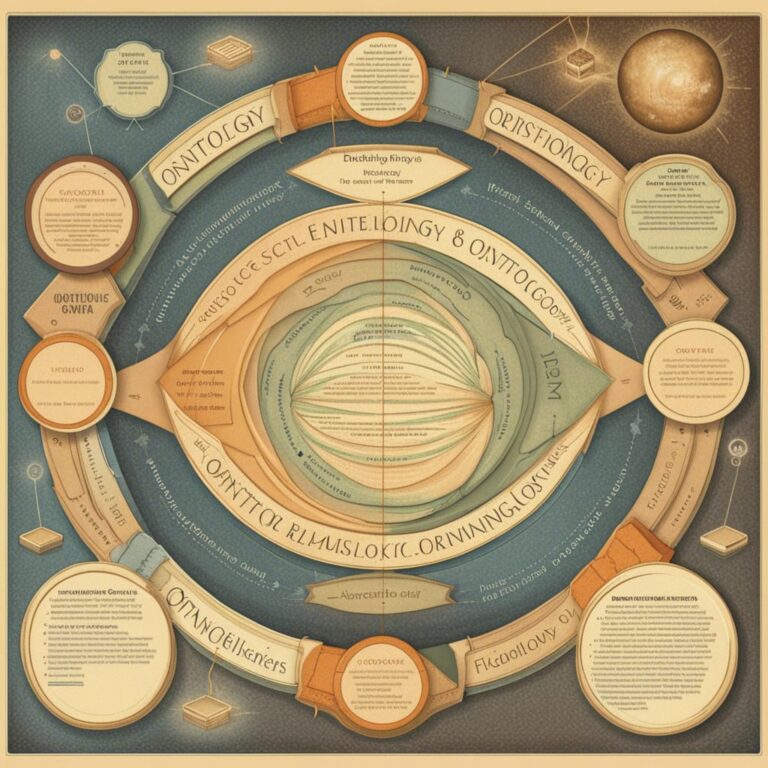
There’s a big debate in the scientific community: holism vs reductionism. Some scientists argue that you should look at things from a holistic perspective, while others say that reductionism is the best way to approach problems. So, what’s the difference between these two ways of thinking? And which one is better? Keep reading to find out.
What Is Holism ⭕
Dr. Jan Smuts first coined the word “holism” in 1926. He defined it as “the tendency in nature to form wholes that are greater than the sum of their parts.” Holism is based on the idea that the whole is greater than the sum of its parts.
This can be seen throughout nature, from cells and organs to ecosystems and societies. There are many different schools of thought within holism, but they all share a common goal: to focus on the whole rather than the individual parts.
Reductionism
Reductionism is the belief that complex phenomena can be reduced to the interactions between their individual parts or elements. In this debate, reductionism is often seen as the logically simpler option, while holism is seen as more complex and difficult to understand.
However, many scientists and philosophers argue that reductionism actually leads to a limited understanding of natural phenomena, while holism provides a more clear view of reality.
Holism Vs Reductionism
Reductionism is the belief that complex phenomena can be reduced to the interactions between their individual parts or elements. In other words, reductionism attempts to explain a complex system by breaking it down into its simplest components.
Holism, on the other hand, is the belief that complex systems cannot be fully understood by examining their individual parts. Instead, one must examine the system as a whole. For example, reductionism would view the human body as a collection of organs, each working independently to perform its own function.
Holism, however, would view the human body as an integrated system in which each organ works together with all the others to maintain health and balance. While reductionism has its merits, holism provides a more holistic understanding of complex systems.
History
The history of holism and reductionism can be traced back to the very beginnings of Western philosophy. In the early days of Greek thought, philosophers like Parmenides and Heraclitus took radically different approaches to understanding reality.
Parmenides argued that reality is a unified whole, while Heraclitus insisted that reality is in a state of constant flux.
These two ideas would go on to form the foundation for holism and reductionism, respectively.
Throughout the centuries, philosophers and scientists have debated the merits of these two approaches. reductionists argue that complex phenomena can be understood by breaking them down into their component parts, while holists maintain that complex phenomena must be studied as a whole.
The debate between these two camps is still very much alive today, with each side continuing to make convincing arguments in support of their respective positions.
Pros And Cons
Holism and reductionism are two approaches that can be used to understand complex systems. Holism focuses on the whole system, while reductionism breaks the system down into its individual parts. Each approach has its own strengths and weaknesses.
Holistic
On the plus side, holism allows for a more comprehensive understanding of a system. It takes into account the interrelationships between different elements, and how they work together to produce the overall effect.
This can be very helpful when trying to solve problems or make predictions. However, holism can also be quite difficult to apply in practice, since it often requires a lot of information about the system as a whole.
In addition, holism can sometimes lead to oversimplification, as it can be easy to lose sight of the nuances when looking at the big picture.
Reduction
Reductionism, on the other hand, allows for a more precise and detailed understanding of a system. By breaking it down into its individual parts, it is possible to gain a greater understanding of how each element works and how it contributes to the overall function of the system.
This can be very useful for designing experiments or making calculations. However, reductionism can also lead to oversimplification, as it is often difficult to see how the different parts of a system interact with each other.
In addition, reductionism can miss important aspects of a system that can only be understood by looking at it as a whole.
Practical Applications
The study of psychology often requires understanding complex ideas and theories. In many ways, these two perspectives are complementary, and both can be useful in different situations.
For example, when trying to lose weight, it may be helpful to take a holistic approach. This means looking at your diet and lifestyle as a whole and making changes that will lead to sustainable weight loss.
However, there may also be times when a more reductionist approach is necessary. For example, if you are struggling to stick to your diet, you may need to break it down into smaller goals, such as eating healthier meals or exercising more frequently.
By understanding both holism and reductionism, you can create a well-rounded approach to achieving your goals.
Examples
The debate between holism and reductionism is a long-standing one in the field of psychology. Proponents of holism argue that the whole is greater than the sum of its parts and that behavior cannot be fully understood by looking at individual components.
In contrast, reductionists believe that behavior can be explained by breaking it down into smaller pieces. Both approaches have their merits, and examples of both can be found in research on human behavior.
Holism
In psychology, holism describes a holistic approach that considers the mind, body, and spirit as one unified system. One of the main benefits of holism is that it can help people see themselves in a new light.
Understanding how all of their parts work together allows people to see themselves as a complex but unified whole. This can be helpful in terms of self-esteem and self-awareness.
Since holism aims to understand how all of the parts interact, it can help identify and resolve conflicts between different parts of the self. This can be helpful in terms of personal growth and development.
Medicine
In holistic medicine, holism is a philosophy that views the body as a whole, interconnected system and seeks to treat the entire person, not just individual symptoms. This approach to medicine can be very beneficial. It allows practitioners to look at the person as a whole and identify any underlying problems causing their health issues.
Holistic nursing is becoming increasingly popular, and more nurses are seeing the benefits of this approach. If you are interested in learning more about holistic nursing, many resources are available, including books, websites, and courses.
One of the benefits of holistic nursing is that it can help nurses develop a deeper understanding of their patients and their needs.
By taking a holistic approach, nurses can identify potential problems early on and address them before they become more serious. In addition, holistic nursing can help promote physical and emotional healing.
One of the main criticisms of holistic medicine is that it is not always supported by scientific evidence. However, many people who have tried holistic medicine find that it helps them feel physically and emotionally better.
Many organizations are dedicated to holistic nursing, such as the American Holistic Nurses Association (AHNA) and the Holistic Nursing Network (HNN). Holistic medicine can also provide preventative care, essential for maintaining good health.
Sociology
Another example of holism in action comes from studies on social interactions. Researchers have found that people are more likely to cooperate with others when they feel like they are part of a larger group. This effect is known as “group cohesion,” and it demonstrates how people’s behavior can be influenced by the groups they belong to.
Another example comes from research on self-control. Studies have shown that people are more likely to resist temptation when they are focusing on their long-term goals, rather than their immediate desires. This finding suggests that people are capable of making decisions that are not dictated by their immediate impulses and that they can behave in ways that reflect their values and goals.
Reductionist
Reductionism can also be seen in action in psychological research. One example comes from studies on learning and memory. Researchers have found that forgetting occurs when the information is not encoded correctly, or when it is not retrieved correctly.
This finding demonstrates how forgetting happens as a result of specific processes, and how it can be explained by looking at the individual components of memory. Another example comes from research on emotions.
Scientists have found that emotions are generated by different patterns of activity in the brain and that each emotion is associated with a unique combination of physiological changes. This finding shows how emotions arise from specific regions and systems in the brain, and how they can be understood by studying these individual parts.
Both holism and reductionism have their place in psychological research, and each approach has its own strengths and weaknesses. By understanding both perspectives, psychologists can gain a more complete understanding of human behavior.
Looking Forward
As we look to the future of science, it is clear that the ability to take a holistic approach will be essential. The world is becoming increasingly complex, and the problems we face are often multi-faceted. To find solutions, we need to be able to see the big picture and understand how the different parts of a system interact with each other. By taking a reductionist approach, breaking a problem down into its component parts, we can gain a deep understanding of how it works. However, this knowledge is only useful if we can also see how these parts fit together and interact with each other. To truly solve the problems of tomorrow, science must embrace both holism and reductionism.
Final Word
In conclusion, holism and reductionism are two philosophical approaches to understanding the world around us. They each have their own history, benefits, drawbacks, and applications. By understanding both philosophies, we can apply them in our lives to make better decisions about the world we live in. What do you think? Is there a place for both philosophies in the future of science? Let us know your thoughts in the comments below or check out our other articles on philosophy!





